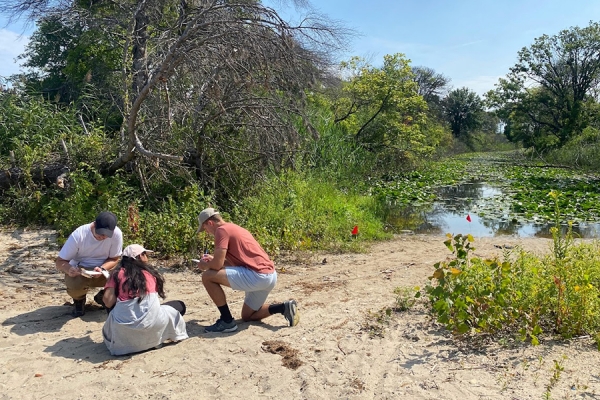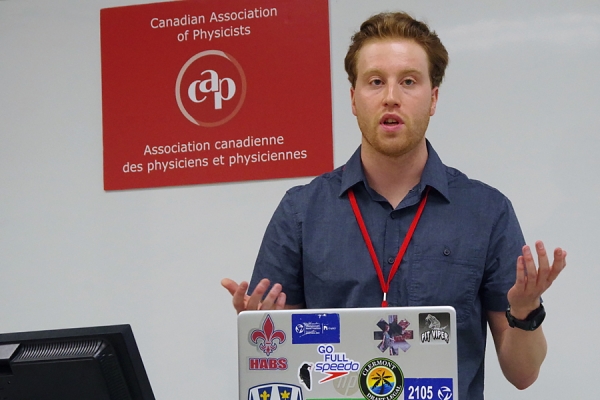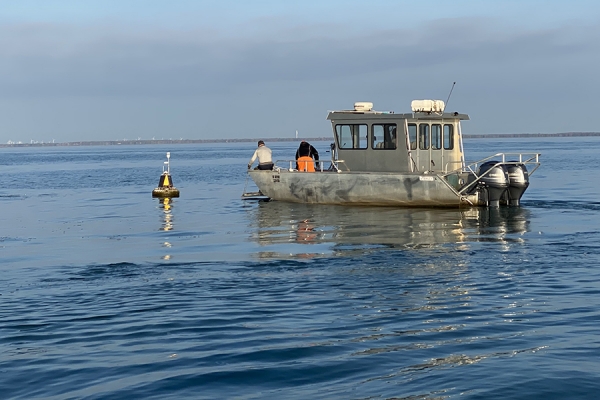 Students Brian Kountourogiannis, Rucha Patel, and Ryan Gilham set up transects to collect samples on Peche Island.
Students Brian Kountourogiannis, Rucha Patel, and Ryan Gilham set up transects to collect samples on Peche Island.
Apr 30th, 2025
A project led by researchers at the University of Windsor will combine their data with that gathered by community members to protect the waters of the Great Lakes.






